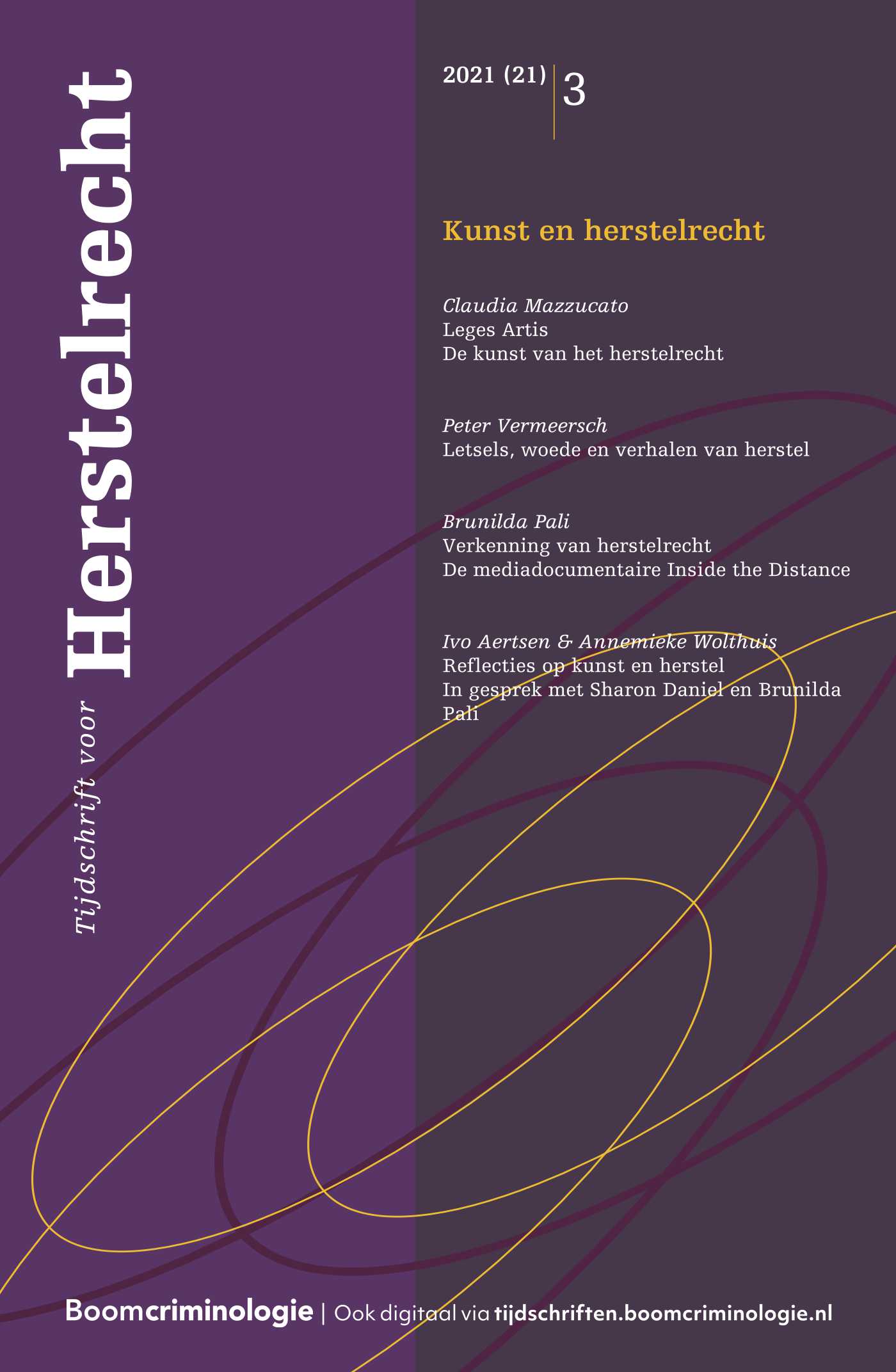|
The article reflects on the conceptual work undertaken during the first year of ALTERNATIVE, a project coordinated by KU Leuven. The overall objective of the project is to provide an alternative and deepened understanding of justice and security based on empirical evidence of how to handle conflicts within intercultural contexts, mainly through the active participation of citizens. The paper focuses mainly on the relation of the concept of citizenship with restorative justice, especially as viewed and enacted in the four intercultural settings of the ALTERNATIVE project. Several issues are discussed: the concept of participatory citizenship in relation to crime and conflict; the claim of the discourse of restorative justice to the concept of participatory citizenship and democracy and the challenges in the restorative justice discourse that complicate its relationship to participatory citizenship. Next, insight is provided in the ways the ALTERNATIVE project tries to tackle some of these challenges, by exploring and strengthening the relationship between the concept of active citizenship and justice in Europe. By targeting the intercultural field the ALTERNATIVE aims to explore the potential of mediation services and restorative justice models to engage with macro societal conflicts that are not referred to these services by the criminal justice system, and on the other hand expand the way some of the crimes referred by the criminal justice system are handled by the mediation services alternatively by fostering alliances with various civil society organisations. Employing ‘action research’ methodology, it is argued that the concept and framework of ‘nodal governance’ (Shearing and Wood, 2003) can serve to support participatory modes of conflict regulation. Interactive settings are created, which allow for spaces between informal and formal justice, and between justice mechanisms at the individual and at the societal level (Aertsen, 2001, 2008). Arguments are provided in support of the need to promote broader models of restorative justice which are able to address social and systemic crimes and conflicts, and which will help the theory and practice of RJ to move beyond the individualisation of crime and its remedies. |


Tijdschrift voor Herstelrecht
Meer op het gebied van Mediation en herstelrecht
Over dit tijdschriftMeld u zich hier aan voor de attendering op dit tijdschrift zodat u direct een mail ontvangt als er een nieuw digitaal nummer is verschenen en u de artikelen online kunt lezen.
| Column |
Vreedzaam herstel en het evidence-beest |
| Auteurs | Micha de Winter |
| Auteursinformatie |
| Redactioneel |
Pleidooi voor ‘tante Ali 4.0’ |
| Auteurs | Lieve Bradt, Hilleke Crum, Janny Dierx e.a. |
| Auteursinformatie |
| Artikel |
Actieve rechtvaardigheidHerstelrecht als vruchtbare bodem voor de uitoefening van burgerschap |
| Auteurs | Brunilda Pali |
| SamenvattingAuteursinformatie |
| Artikel |
Samen beslissen over je eigen omgeving.Wijkbewoners aan zet met een Eigen Kracht-conferentie voor groep, wijk of buurt |
| Auteurs | Hilleke Crum |
| SamenvattingAuteursinformatie |
|
The Eigen Kracht Centrale is striving for a society based on participation and mutual self reliance of citizens, where citizens remain in charge of their own life, especially when dealing with organizations and government bodies. It is important, in the Eigen Kracht Centrale vision, that everyone is part of society and everyone can participate, everyone has a say and remains in charge of his or her own life, everyone gets support from their own social network: family, friends, neighbors, etc. |
| Artikel |
Eigen Kracht in de buurt – durven we wel? |
| Auteurs | Piet van Diepen |
| SamenvattingAuteursinformatie |
|
In various neighbourhoods in Amsterdam tensions between their inhabitants are felt. Inhabitants are irritated by the behaviour of youths, polluted streets and nuisance from their neighbours. They are incapable or do not dare to address each other about this and to solve their problems by themselves. Instead they look towards the authorities for help, which are dealing with insufficient capacity. As a consequence it is getting harder and harder to address and correct each other. Small problems and conflicts develop into big and complex issues. |
| Artikel |
Het Utrechts Mediatiemodel: opvang voor basisconflicten op wijkniveau |
| Auteurs | Janny Dierx en Caroline Verhoeff |
| SamenvattingAuteursinformatie |
|
Utrecht, the fourth largest city of The Netherlands, is addressing resolving social conflict by promoting schools to adhere to the Peaceful School Program and civilians and professionals to join the Peaceful Neighborhood Program. The Peaceful School Program is designed to address problematic behavior of youth in primary, secondary and high school education and evolved into a democratic and participatory citizenship program. The Peaceful Neighborhood Program is involving important organizations that are active within the neighborhood, members of the community and stake-holders to adapt peaceful attitudes in daily life, including a mind-set that addresses conflicts by resolving them (together). |
| Boekbespreking |
Situering: herstelrecht en pedagogiek |
| Auteurs | Leo van Garsse |
| Auteursinformatie |
| Boekbespreking |
De Improvisatiemaatschappij |
| Auteurs | Gert Jan Slump |
| Auteursinformatie |
